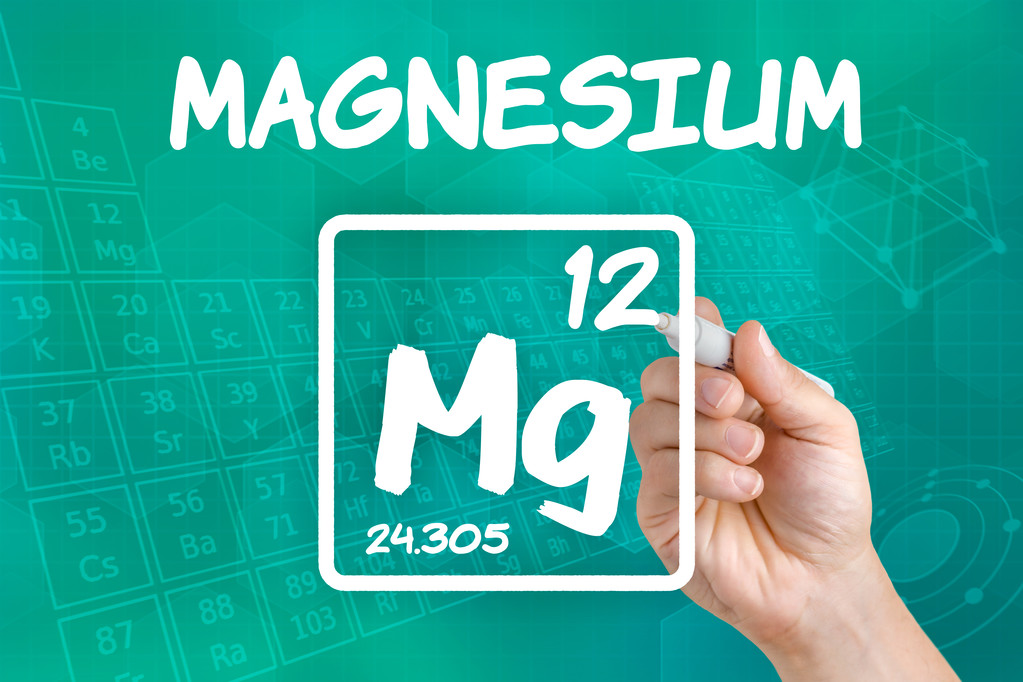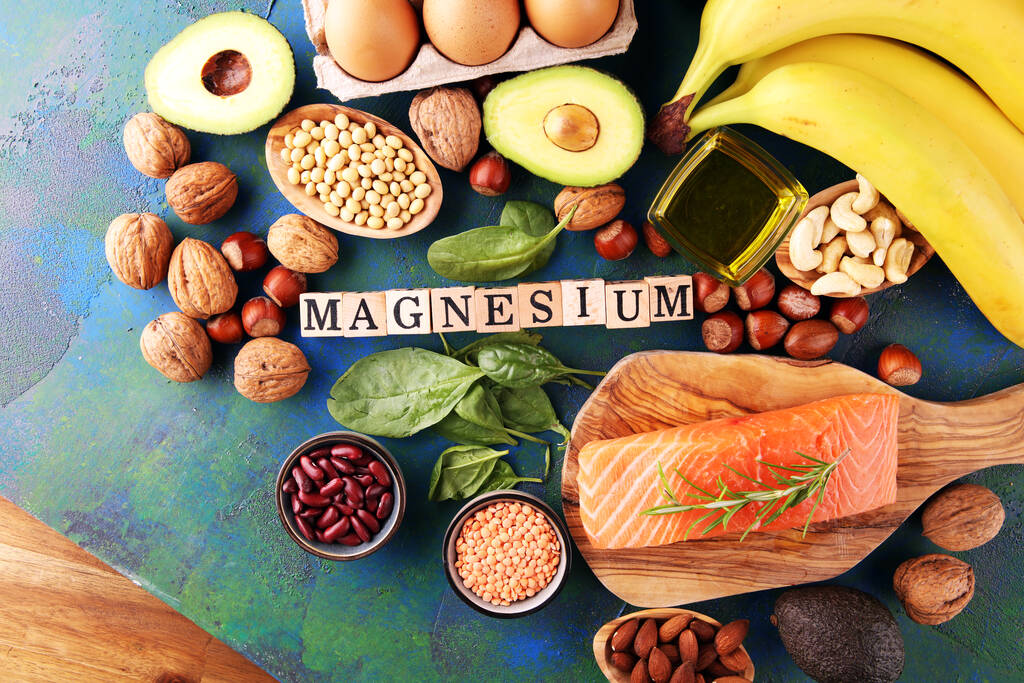Magnesium: Energy Booster Explained
September 13, 2023

Welcome, dear reader, to the magical world of magnesium! This humble mineral, often overlooked in favor of its flashier siblings like calcium and iron, is actually a superstar in its own right. It's an energy booster par excellence, and it's about time we gave it the recognition it deserves.
So, buckle up, because we're about to embark on a whirlwind tour of everything you ever wanted to know about magnesium and its role as an energy booster. From its origins in the heart of stars to its presence in your very own cells, we'll leave no stone unturned in our quest to understand this mighty mineral.

The Origin Story of Magnesium
Every superhero needs an origin story, and magnesium is no exception. This mighty mineral was born in the heart of stars, forged in the fiery crucible of nuclear fusion. When these stars exploded in spectacular supernovas, they scattered their elemental bounty across the universe, including the magnesium that now makes up part of our bodies.
But magnesium didn't just land on Earth ready to boost our energy levels. Oh no, it had to undergo a long and complex journey to become the mineral we know and love today. From its formation in the molten core of the Earth to its incorporation into the planet's crust and oceans, magnesium has been on quite the adventure.
From Stars to Earth
So, how did magnesium make the leap from stardust to Earth? Well, it's all thanks to the process of stellar nucleosynthesis. This is the process by which elements are created within stars through the fusion of atoms. When a star explodes in a supernova, these elements are scattered across the universe, eventually forming new stars and planets, including our own.
But the journey doesn't end there. Once on Earth, magnesium had to be incorporated into the planet's crust and oceans. This happened through a process known as weathering, where rocks are broken down by wind, water, and other natural forces. Over millions of years, this process released magnesium into the Earth's oceans, where it became a vital part of the marine ecosystem.
Into Our Bodies
But how does magnesium get from the Earth's crust and oceans into our bodies? Well, it's all thanks to the magic of the food chain. Plants absorb magnesium from the soil through their roots, and then we eat those plants (or the animals that ate those plants), thereby getting our own dose of this mighty mineral.
And once inside our bodies, magnesium gets to work doing what it does best: boosting our energy levels. But before we get into the nitty-gritty of how it does this, let's take a moment to appreciate just how amazing this journey is. From the heart of stars to the cells of our bodies, magnesium has traveled across space and time to help us live our best lives. Now that's what I call a superhero!
The Role of Magnesium in Energy Production
Now that we've covered the epic journey of magnesium from stars to our cells, let's delve into the science of how this mineral boosts our energy levels. And trust me, it's a fascinating story!
At its most basic, energy production in our bodies is all about ATP, or adenosine triphosphate. This molecule is like the currency of energy in our bodies, and magnesium plays a crucial role in its production.
Magnesium and ATP
So, how does magnesium help produce ATP? Well, it's all about enzymes. Enzymes are like the workers in a factory, and magnesium is like the foreman who makes sure everything runs smoothly. Without magnesium, the enzymes that produce ATP wouldn't be able to do their jobs, and our energy levels would plummet.
But that's not all. Magnesium also helps to stabilize ATP, preventing it from breaking down before it can be used. This ensures that our bodies have a steady supply of energy, ready to be used whenever we need it.
Magnesium and Mitochondria
But the role of magnesium in energy production doesn't stop at ATP. This mighty mineral also plays a crucial role in the functioning of our mitochondria, the powerhouses of our cells.
Mitochondria are like tiny factories inside our cells, churning out ATP to fuel all our bodily functions. And just like in the ATP production process, magnesium acts as a foreman, ensuring that everything runs smoothly. Without enough magnesium, our mitochondria wouldn't be able to produce ATP efficiently, leading to low energy levels and fatigue.
Signs of Magnesium Deficiency
Now that we understand the crucial role that magnesium plays in energy production, it's easy to see why a deficiency in this mineral can lead to low energy levels and fatigue. But fatigue isn't the only sign of magnesium deficiency. There are several other symptoms to watch out for, some of which might surprise you.
So, without further ado, let's dive into the signs of magnesium deficiency. Remember, knowledge is power, and the more you know about your body, the better you can take care of it!
Physical Symptoms
The most common physical symptoms of magnesium deficiency include fatigue, muscle weakness, and cramps. These symptoms occur because magnesium plays a crucial role in muscle function, and without enough of it, our muscles can't work properly.
But that's not all. Magnesium deficiency can also lead to a loss of appetite, nausea, and vomiting. These symptoms are less common, but they can occur in severe cases of deficiency.
Mental Symptoms
But the effects of magnesium deficiency aren't just physical. This mighty mineral also plays a crucial role in brain function, and a deficiency can lead to a range of mental symptoms. These include mood swings, anxiety, and even depression.
So, if you're feeling low and can't figure out why, it might be worth checking your magnesium levels. Remember, your mental health is just as important as your physical health, and taking care of your body can have a big impact on your mood and wellbeing.
Boosting Your Magnesium Levels
So, you've read all about the amazing benefits of magnesium and the dangers of deficiency, and now you're wondering how to boost your own magnesium levels. Well, you're in luck, because there are several ways to do this, from dietary changes to supplements.
But before we dive into the details, remember that everyone's body is different, and what works for one person might not work for another. So, always listen to your body and consult with a healthcare professional before making any major changes to your diet or supplement routine.
Dietary Sources of Magnesium
The best way to boost your magnesium levels is through your diet. There are plenty of magnesium-rich foods to choose from, including green leafy vegetables, nuts and seeds, and whole grains. So, whether you're a meat-eater, vegetarian, or vegan, there's something for everyone.
But remember, not all magnesium-rich foods are created equal. Some are more bioavailable than others, meaning your body can absorb and use their magnesium more easily. So, try to include a variety of sources in your diet to ensure you're getting the most bang for your buck.
Magnesium Supplements
If you're struggling to get enough magnesium through your diet, or if you have a medical condition that affects your body's ability to absorb this mineral, you might want to consider taking a supplement. There are several types of magnesium supplements available, including magnesium citrate, magnesium glycinate, and magnesium oxide.
But remember, supplements should never be used as a substitute for a healthy diet. They're a tool to help you reach your nutritional goals, not a magic bullet. So, always aim to get as much magnesium as you can from your diet, and use supplements as a backup if needed.

Conclusion
And there you have it, dear reader: everything you ever wanted to know about magnesium and its role as an energy booster. From its origins in the heart of stars to its presence in your very own cells, we've covered it all. We've delved into the science of how magnesium boosts our energy levels, explored the signs of deficiency, and even given you some tips on how to boost your own magnesium levels.
So, the next time you're feeling tired and low on energy, remember the mighty magnesium. This humble mineral has traveled across space and time to help you live your best life, and it's ready and waiting to give you the energy boost you need. So, why not give it a try? You might just be surprised at the difference it can make!

 Back to Blog
Back to Blog